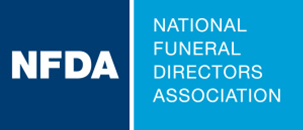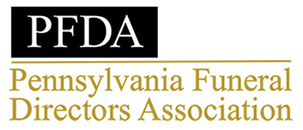
Pre-planning a funeral is a thoughtful way to ease the burden on your loved ones while ensuring your final wishes are respected.
It involves making key decisions about your funeral service in advance—from the type of ceremony you want to the funeral home you prefer. Many people choose to take this step to gain peace of mind and to avoid placing emotional and financial stress on their families during an already difficult time.
There are many benefits to planning a funeral ahead of time. Emotionally, it allows families to focus on grieving and supporting each other rather than scrambling to make decisions under pressure. Financially, it can help lock in today’s prices and provide options for payment plans, reducing the risk of future financial strain. However, while the intention behind pre-planning is commendable, certain mistakes can turn a well-meaning gesture into a source of confusion. Let’s explore the most common pitfalls and how to avoid them.
1. Not Discussing Plans with Family Members
One of the biggest mistakes people make when pre-planning a funeral is doing it in isolation. While the plan may reflect your personal wishes, failing to communicate those plans with your family can lead to misunderstandings, disagreements, or even complete unawareness that a plan exists. Surprising loved ones with pre-arranged decisions can create unnecessary tension during a time when unity and understanding are most needed.
It’s important to involve close family members in the conversation. This doesn’t mean every detail needs to be debated, but sharing your general intentions allows loved ones to ask questions and offer their support. It also allows them to understand the reasoning behind your choices, which can bring them comfort later on.
2. Choosing a Funeral Home Without Research
Selecting a professional funeral services provider is a significant decision, and doing so without proper research is a common misstep. Not all funeral homes offer the same services, pricing, or level of care. Some may specialise in certain types of services, while others may not provide the flexibility or transparency you expect.
Before committing, take time to compare funeral homes in your area. Look at online reviews, ask for itemised price lists, and consider factors like proximity to family members, the home’s reputation, and available facilities. During your initial visit or call, ask the funeral director questions such as: What’s included in the service packages? Are there any additional fees? What’s the process for making changes later on?
3. Overlooking Documentation and Paperwork
Pre-planning a funeral involves a fair amount of paperwork, including pre-need contracts, payment agreements, and documentation of your preferences. One of the most damaging errors is neglecting to organise or securely store these documents. Misplaced contracts or poorly written agreements can lead to confusion, delays, or even disputes over services.
Make sure all documents are stored in a safe, accessible place, and let a trusted family member know where to find them. Consider using a fireproof safe, secure digital storage, or registering the plan with a reputable online funeral registry. Keep a copy of all relevant paperwork, and make sure the terms are clearly understood.
4. Ignoring the Financial Side of Planning
Some people underestimate the costs associated with a funeral, while others forget to account for inflation or hidden fees. Not budgeting properly or failing to explore payment options can leave families with unexpected expenses.
Pre-planning should include a detailed financial strategy. You may choose to pay in full at today’s rates or set up a pre-paid funeral plan with instalments. Another option is to create a separate savings account specifically for funeral costs. Whichever method you choose, make sure it is legally protected and transparent. Always review the fine print and ask about refund policies or transfer options if you relocate.
5. Failing to Review or Update the Plan Over Time
Life changes—and so should your funeral plan. A common oversight is creating a plan and then never revisiting it. Over the years, your preferences, location, family dynamics, or financial situation may shift, making your original plan outdated.
It’s wise to review your pre-planned arrangements every few years. If you move to another city or state, the funeral home you’ve chosen may no longer be convenient. If you marry, divorce, or experience significant loss, your wishes might change. Many funeral providers allow you to update your plan without starting over, so don’t hesitate to make adjustments as needed.
6. Not Considering Cultural or Religious Traditions
Overlooking personal, cultural, or religious traditions when pre-planning a funeral can lead to services that don’t truly reflect who you are or what your family values are. For some families, certain rituals, prayers, or customs are non-negotiable and deeply meaningful.
Take time to reflect on your beliefs and how they should be honored. Discuss these preferences with your family and the funeral director. Whether it’s a particular type of ceremony, dress code, or prayer, make sure these elements are recorded and communicated clearly so they can be respectfully included.
7. Assuming Everything is Covered
Pre-planning often involves big-picture items like choosing a casket or arranging cremation, but it’s easy to forget the finer details. Things like who writes the obituary, where the post-service reception will be held, or what kind of flowers you’d prefer are sometimes assumed to be covered—but may not be.
Never assume the funeral home handles every detail. It’s important to ask what’s included in their service and what’s left to the family. Creating a checklist that includes all personal touches—from music choices to eulogists—can prevent these details from being missed.
8. Forgetting to Communicate the Location of the Plan
Perhaps the most avoidable mistake is forgetting to let someone know that a funeral plan exists—or where to find it. A plan is only useful if your loved ones can access it when the time comes.
Make sure you inform at least one trusted family member or legal representative about the location of your plan. If you’ve used digital storage, share login information or ensure someone knows how to retrieve the files. Many people also choose to include funeral plan details with their will or in a safe deposit box.
Frequently Asked Questions
Below are some commonly asked questions to consider:
What’s the difference between pre-paying and pre-planning a funeral?
Pre-planning involves outlining your wishes and making decisions in advance, while pre-paying means financially covering those arrangements ahead of time. You can pre-plan without pre-paying or do both for added security.
Can I change my funeral plan after it’s made?
Yes, most funeral providers allow you to make changes to your plan. It’s advisable to check the terms of your contract and update your documentation whenever your circumstances change.
Does pre-planning mean my family can’t make any decisions?
Not necessarily. You can choose how detailed your plan is. Some people leave room for their families to make final touches, while others outline everything. Open communication is key.
Pre-Planning a Funeral Should be Done with Careful Consideration
Funeral pre-planning is an act of care and consideration. Done right, it eases the burden on loved ones and ensures that your final wishes are honored. But even with the best intentions, simple mistakes can cause unnecessary stress, confusion, or financial strain. By taking the time to communicate with family, choose the right funeral home, stay on top of documentation, plan financially, review the plan over time, honor cultural values, and make sure the plan is accessible, you can avoid the most common pitfalls. Thoughtful pre-planning gives you and your family peace of mind—and that’s something truly meaningful.



